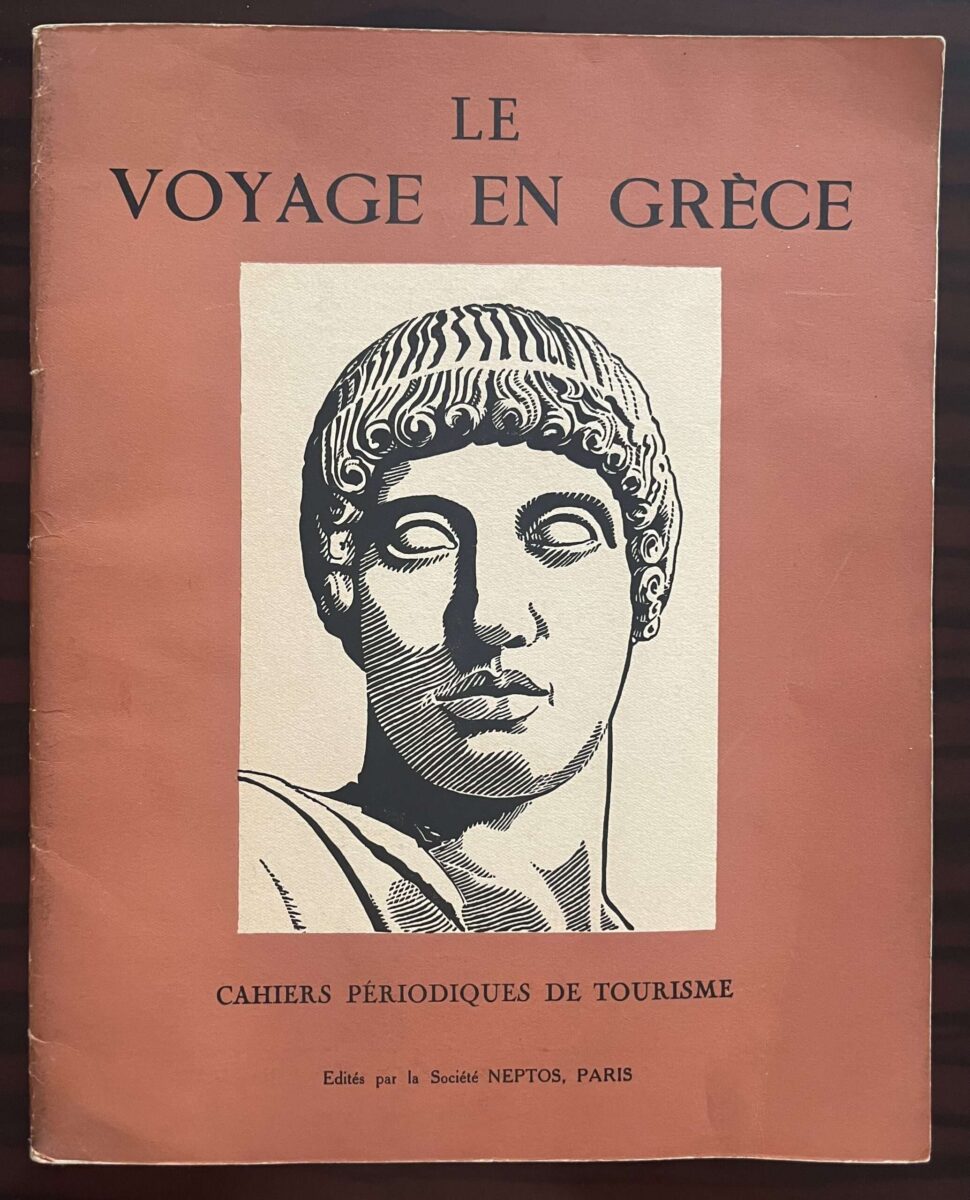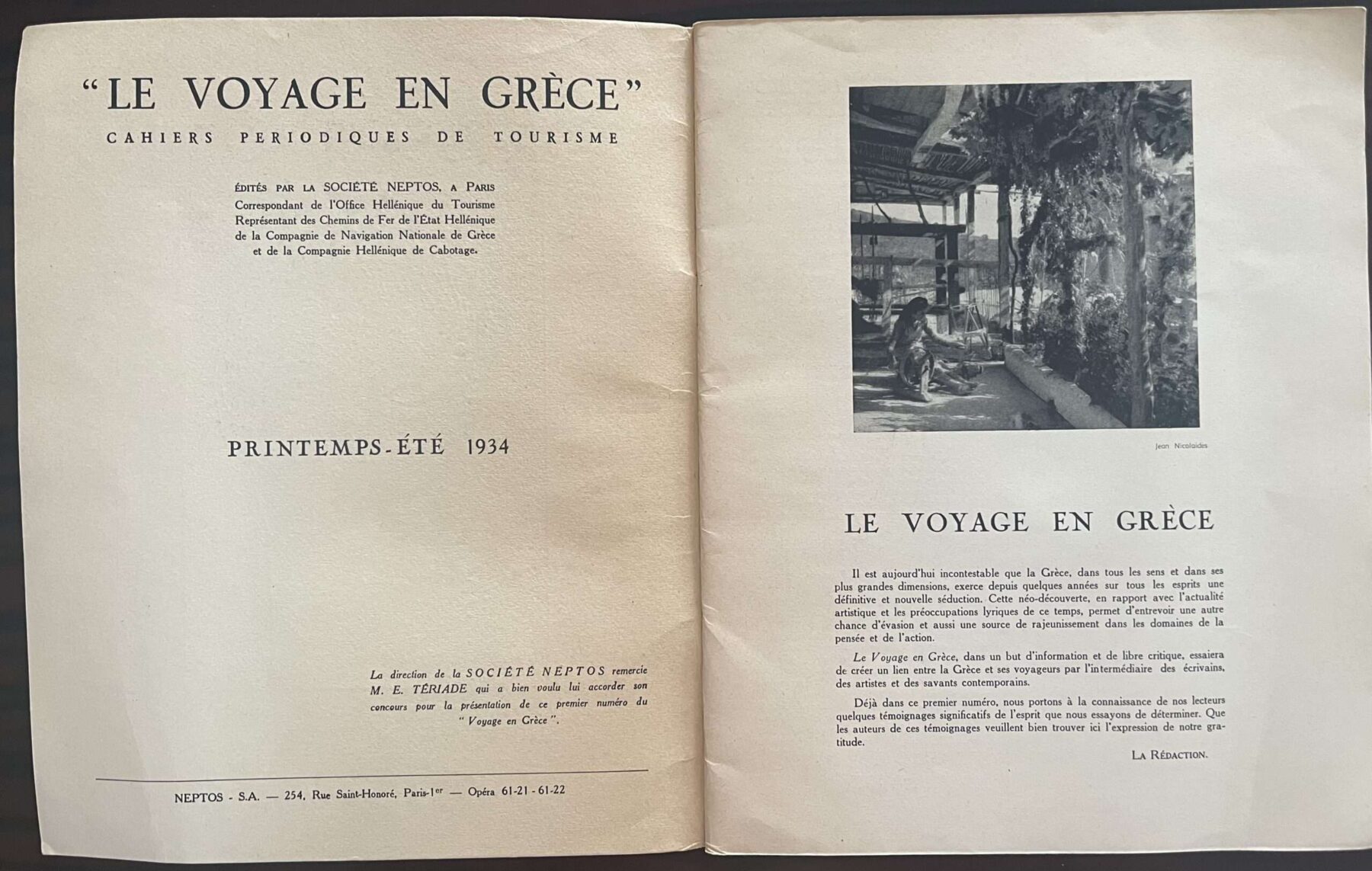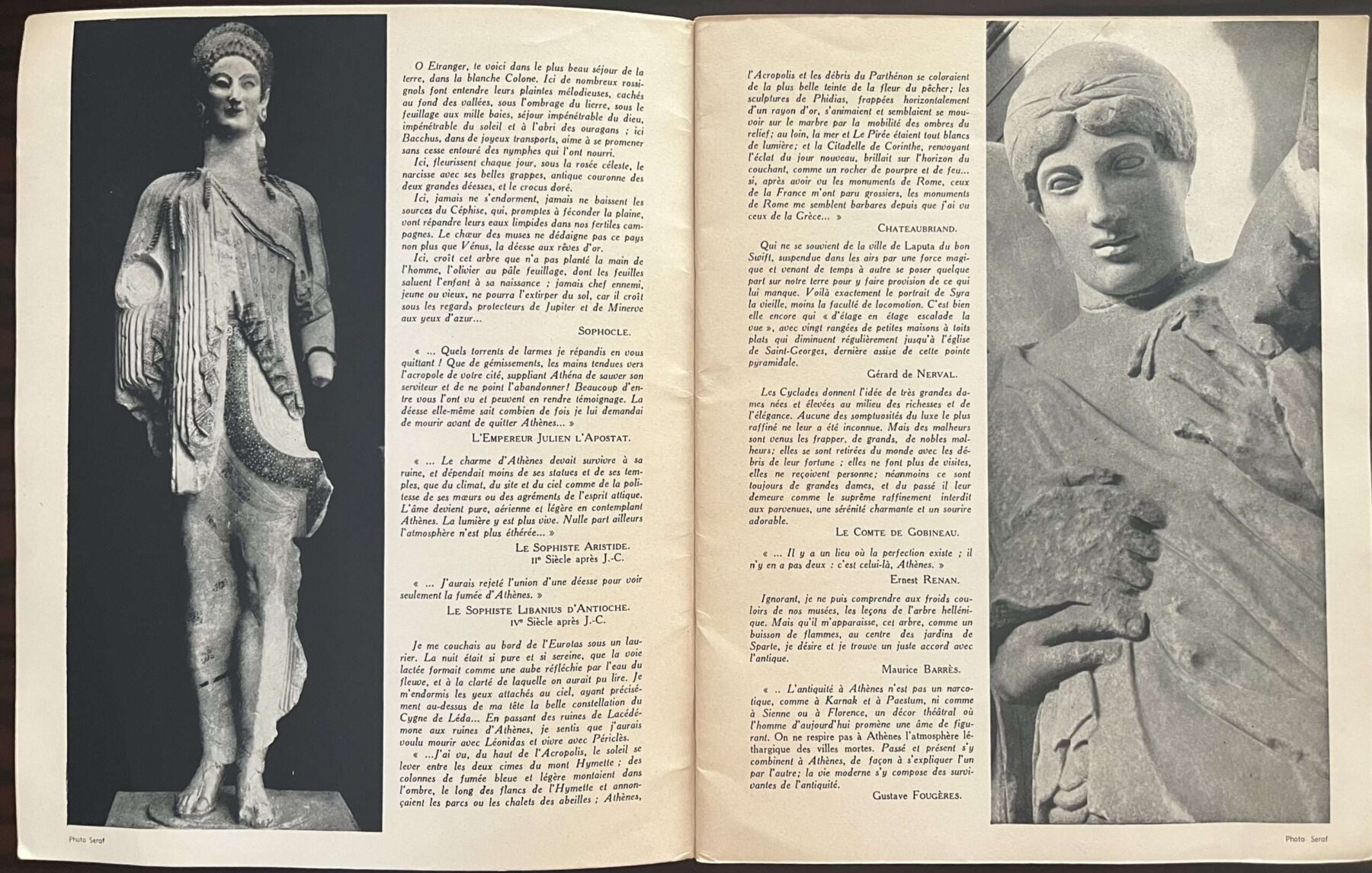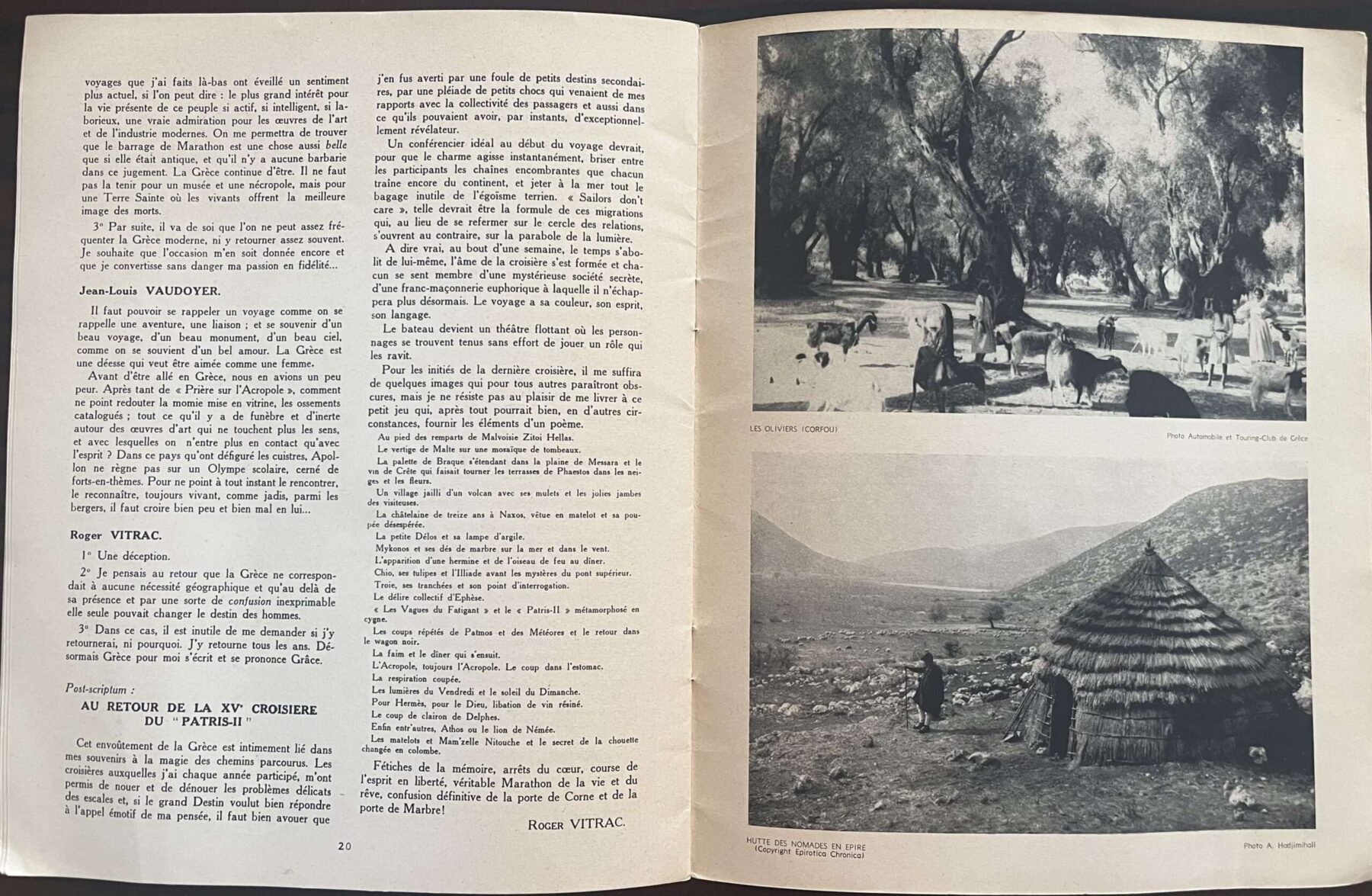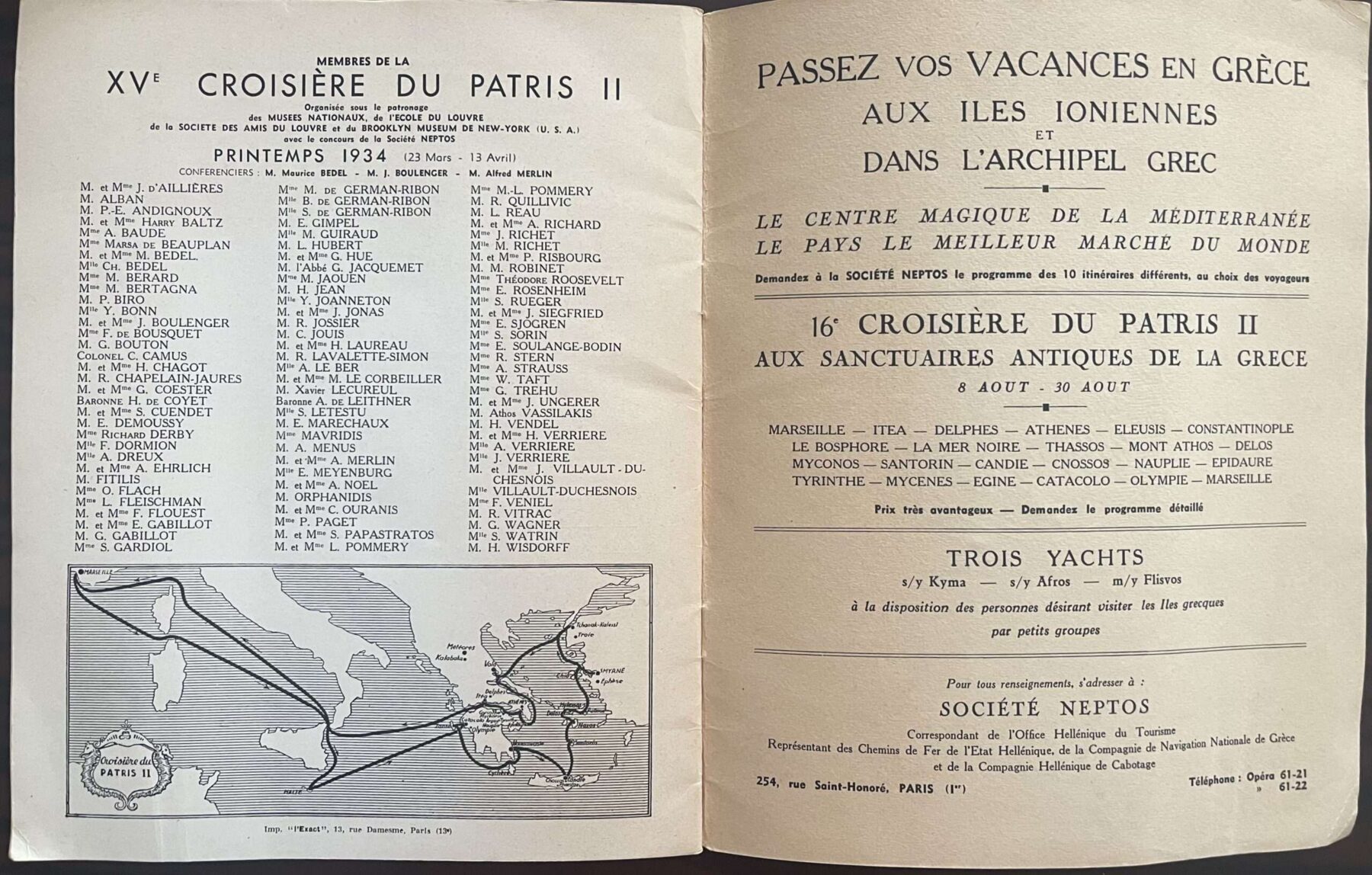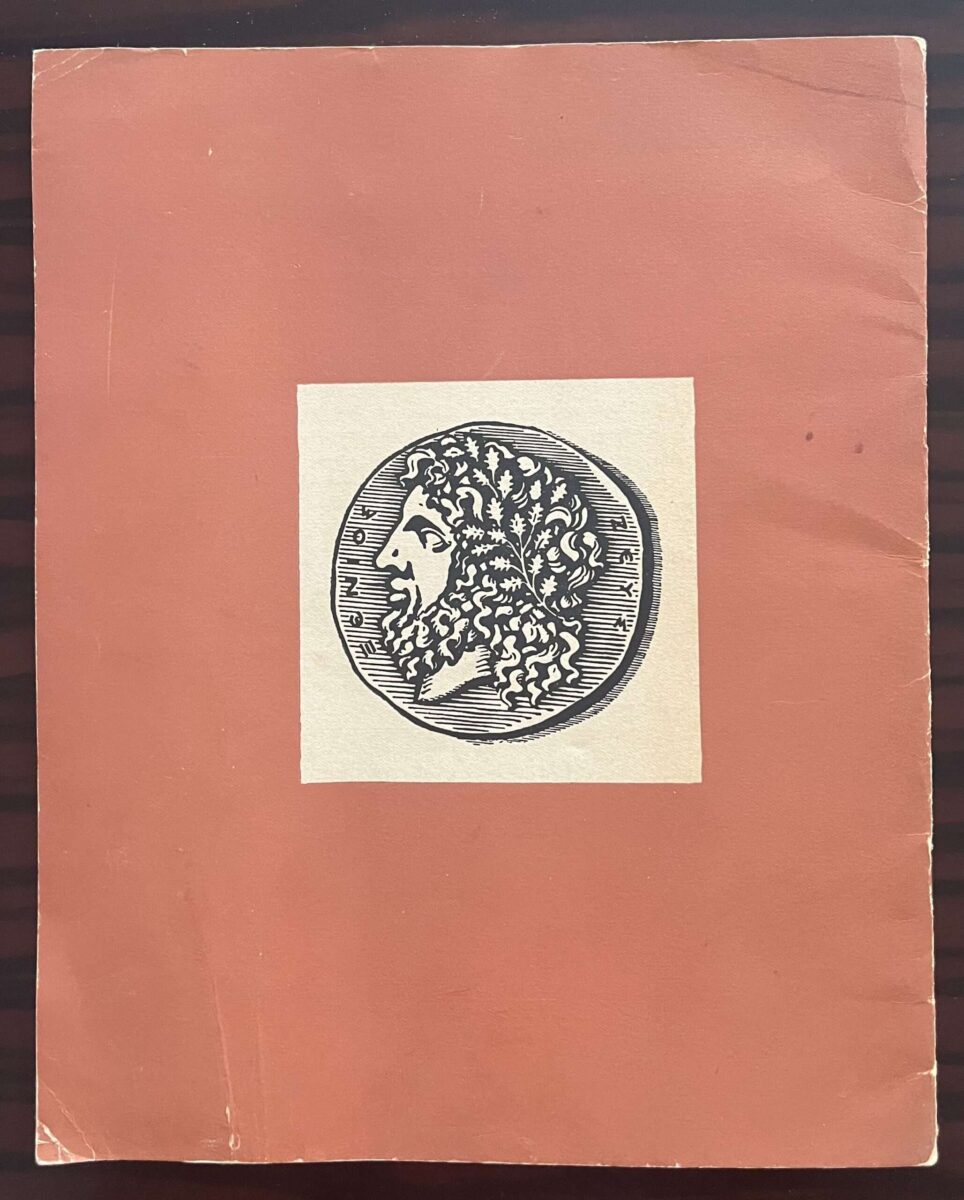Rare, 1934, Le Voyage en Grece, Neptos Paris, Greece, Le Corbusier, Fernand Leger, Roger Vitrac, Giorgio De Chirico
100.00€
Charles-Édouard Jeanneret (1887 – 1965), known as Le Corbusier, was a Swiss-French architect, designer, painter, urban planner and writer, who was one of the pioneers of what is now regarded as modern architecture. His career spanned five decades, in which he designed buildings in Europe, Japan, India, as well as North and South America.
Roger Vitrac (1899 – 1952) was a French surrealist playwright and poet. He was a founding member of the Surrealist movement and one of the signatories of Andre Breton’s First Surrealist Manifesto (1924).
Out of stock
Description
Wonderfully Illustrated Travel and Art Magazine
LE VOYAGE EN GRECE
CAHIERS PERIODIQUES DE TOURISME
PRINTEMPS – ETE 1934
Issue Nr.1
Published in Paris by Neptos in 1934
Original Soft Binding
Pages 24
27,5 cm x 22 cm
First Edition
Published between 1934 and 1939, the magazine “Le Voyage en Grèce” appears as one of the most accomplished editorial adventures of the interwar period. Its content is inseparable from the aspirations of its director Heracles Joannides, representative in Paris of the Neptos tourism company, who wanted to “create a link between Greece and its travelers through contemporary writers, artists and scholars”. The result of this exceptional openness, which had the effect of bringing classicism closer to the avant-gardes, far exceeded what could have been expected from a company initially aimed at tourism. The Neptos company, which belonged to the Greek shipowner Leonidas Embiricos, organized cruises in the Mediterranean in the footsteps of Ulysses (“The Stopovers of Ulysses”) with the ship Patris II, following a proposal by Joannides to revive tourism in Greece. Primarily intended for the passengers of the Patris II, “Le Voyage en Grèce” promoted its archaeological itineraries, organized under the patronage of the National Museums and the École du Louvre. Joannides, with his friend and compatriot Tériade – who became the artistic advisor of “Le Voyage en Grèce” after leaving the editorial board of the luxurious art magazine “Minotaure” – brought art, literature and archaeology into dialogue in an unprecedented spirit of synthesis, calling on collaborators from all walks of life: Le Corbusier, Giorgio De Chirico, Pierre Reverdy, André Derain, Gustave Fougères, Pablo Picasso, Georges Braque, Roger Caillois, Marguerite Yourcenar, Jean Charbonneaux, Jacques Prévert, Roger Vitrac, Henri Matisse, Hubert Pernot, Raymond Queneau, Fred Boissonnas, Michel Leiris, Pierre de La Coste-Messelière, Fernand Léger, François Mauriac, Jean Cassou, Waldemar Deonna.
Texts of this issue by:
Joseph Fernand Henri Léger (1881 – 1955) was a French painter, sculptor, and filmmaker. In his early works he created a personal form of cubism (known as “tubism”) which he gradually modified into a more figurative, populist style. His boldly simplified treatment of modern subject matter has caused him to be regarded as a forerunner of pop art.
Giuseppe Maria Alberto Giorgio de Chirico (1888 – 1978) was an Italian artist and writer born in Greece. In the years before World War I, he founded the scuola metafisica art movement, which profoundly influenced the surrealists.
Additional information
| Languages | French |
|---|
You may also like…
-
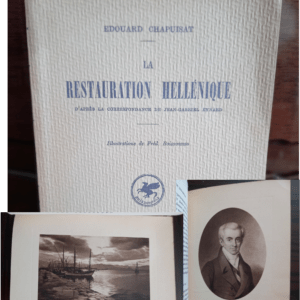
1924, Eduard Chapuisat, Frederic Boissonnas, La Restauration Hellenique, First Edition, Jean Gabriel Eynard
170.00€ Add to cart -

1919, Frederic Boissonnas, La Grece Immortelle, Immortal Greece, 1st Edition
120.00€ Read more -
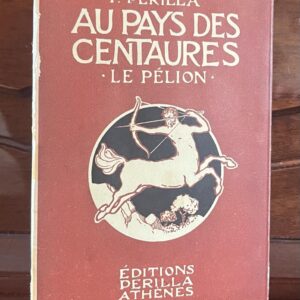
1940, Francois Perilla, Au Pays des Centaures, Le Pelion, Very Rare Pocket Guide
65.00€ Add to cart -
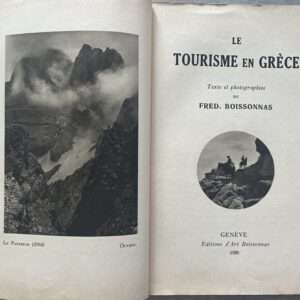
1930, Le Tourisme en Grece, Frederic Boissonnas, Geneva, First Edition
110.00€ Read more

